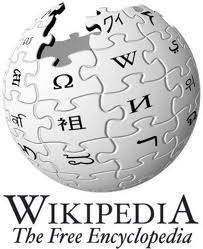 Caterpillar to Butterfly: Systematic Definitions– TO – Relational Definitions
Caterpillar to Butterfly: Systematic Definitions– TO – Relational Definitions
 From Caterpillar to Cocoon to Butterfly – Part XVII
From Caterpillar to Cocoon to Butterfly – Part XVII
In this series we have been asking the question, “What happens with metamorphosis during the cocoon stage?” How, structurally, do you get a butterfly from what once was a caterpillar? In my Aug. 20, 2011’s blog, I listed several forms of transformation that I see occurring inside the cocoon of change for the church. Today we will look at the principle: Definitions that have been created by scholars (caterpillar) TO the Wikipedia phenomenon (butterfly).
 Caterpillar: The institution has defined one’s belief systems over the centuries. Councils, church leaders, scholars, historians, patriarchs, and others have labored over their tenants of faith, attempting to place on paper what they believed. The Jewish faith wrote the Talmud to interpret the Torah, their central text of faith. Christianity has filled libraries with commentaries and theological dissertations to interpret the Bible, their central text of faith. The Bible, a collection mainly of letters, poems, proverbs, and historical works, became books, chapters, and numbered verses for the purpose of organized scholarly study. Many versions of the Bible have been translated from Latin, Greek, and Hebrew to be used in present day culture. The westernized influence of producing learned scholars has fueled the need for Bible colleges and seminaries throughout Church history. Denominations script official “church papers” to define their beliefs and stands on many social, cultural, and religious matters. During sermons you will hear the pastor quote great church theologians. Definitions of what you believed defined the difference between different religious groups or sects. You knew if you were a Calvinist or Armenian, a pre-, post-, or mid-tribulationist, a pacifist, a predestinationalist, a fundamentalist, or an evangelical, or Pentecostal, or main line denomininational, etc. by how you “defined” your statement of faith.
Caterpillar: The institution has defined one’s belief systems over the centuries. Councils, church leaders, scholars, historians, patriarchs, and others have labored over their tenants of faith, attempting to place on paper what they believed. The Jewish faith wrote the Talmud to interpret the Torah, their central text of faith. Christianity has filled libraries with commentaries and theological dissertations to interpret the Bible, their central text of faith. The Bible, a collection mainly of letters, poems, proverbs, and historical works, became books, chapters, and numbered verses for the purpose of organized scholarly study. Many versions of the Bible have been translated from Latin, Greek, and Hebrew to be used in present day culture. The westernized influence of producing learned scholars has fueled the need for Bible colleges and seminaries throughout Church history. Denominations script official “church papers” to define their beliefs and stands on many social, cultural, and religious matters. During sermons you will hear the pastor quote great church theologians. Definitions of what you believed defined the difference between different religious groups or sects. You knew if you were a Calvinist or Armenian, a pre-, post-, or mid-tribulationist, a pacifist, a predestinationalist, a fundamentalist, or an evangelical, or Pentecostal, or main line denomininational, etc. by how you “defined” your statement of faith.
 Butterfly: With the linear, horizontal, relational internet crowd of today, peer communication and linear acceptance is the norm. This has affected the world of “definition”, no longer controlled by unabridged printed dictionaries and volumes of encyclopedias. The “Wikipedia” phenomenon has hit where definitions are presented, not just by scholars, but by anyone. Footnotes at the bottom of pages give the text some validity, but a slanted scholarly approach is not set in stone as “the” definition, as others with personal experience and personal knowledge on the topic can also add to the definition. As an educator in language in the public school system, I warn my students of the accuracy and authenticity of Wikipedia, but students go their first because of electronic convenience. I tell them that Wikipedia is a “starting point” for internet research to other websites, passages, links, blogs, etc. to dig deep into the true meaning of the definition. Today, this linear crowd of peers not only relies on Wikipedia for their definitions, but helps define them.
Butterfly: With the linear, horizontal, relational internet crowd of today, peer communication and linear acceptance is the norm. This has affected the world of “definition”, no longer controlled by unabridged printed dictionaries and volumes of encyclopedias. The “Wikipedia” phenomenon has hit where definitions are presented, not just by scholars, but by anyone. Footnotes at the bottom of pages give the text some validity, but a slanted scholarly approach is not set in stone as “the” definition, as others with personal experience and personal knowledge on the topic can also add to the definition. As an educator in language in the public school system, I warn my students of the accuracy and authenticity of Wikipedia, but students go their first because of electronic convenience. I tell them that Wikipedia is a “starting point” for internet research to other websites, passages, links, blogs, etc. to dig deep into the true meaning of the definition. Today, this linear crowd of peers not only relies on Wikipedia for their definitions, but helps define them.
 The Differences: “Definitions” use to be compiled in printed dictionaries, abridged if shortened, unabridged if a large volume. Definition of words were compiled by “scholars” of language, linguistic, etymology, etc. The “highly educated” P.H.D.’s did the defining for us. We only had to look up their definitions in dictionaries, something everyone owned. Today “scholars” are still fighting for literary and historical accuracy by citing sources, but definitions through Wikipedia, an –ebook compilation of definitions from various sources, also allows average individuals to be part of the defining process in helping to define words, events, famous people, etc. from a personal, or cultural level. Today, Wikipedia, the free encyclopedia, has over 3,724,00 different articles or definitions in its unabridged source. The question becomes “who is the authority” in the process of defining?
The Differences: “Definitions” use to be compiled in printed dictionaries, abridged if shortened, unabridged if a large volume. Definition of words were compiled by “scholars” of language, linguistic, etymology, etc. The “highly educated” P.H.D.’s did the defining for us. We only had to look up their definitions in dictionaries, something everyone owned. Today “scholars” are still fighting for literary and historical accuracy by citing sources, but definitions through Wikipedia, an –ebook compilation of definitions from various sources, also allows average individuals to be part of the defining process in helping to define words, events, famous people, etc. from a personal, or cultural level. Today, Wikipedia, the free encyclopedia, has over 3,724,00 different articles or definitions in its unabridged source. The question becomes “who is the authority” in the process of defining?
 Implications Today: I feel the Wikipedia phenomenon has a huge impact on the way people will look at Bible interpretation in the 21st Century. For centuries the masses of believers have counted on the interpretation of scriptures from their pastors, priests, rectors, parsons, etc. as the official “word of God” as delivered from their pulpits or from scholarly interpretations from the great theologians of their day. Interpretation of belief was always dictated to the laity from the clergy. Today, believers in Jesus Christ, can read for themselves the Bible, while relying on the Holy Spirit for interpretation of how those scriptural truths need to be applied and activated in their daily lives rather than just being a academic exercise. Sharing beliefs, relationally, horizontally, through written form, verbally, or electronically, now holds weight. My interpretation is looked upon as being as valid as yours as we communicate them back and forth to one another. We can share our experiences that have come out of our scriptural studies and how it has affected us culturally, personally, and corporately. Collectively we, together, have begun to “redefine” our definition.
Implications Today: I feel the Wikipedia phenomenon has a huge impact on the way people will look at Bible interpretation in the 21st Century. For centuries the masses of believers have counted on the interpretation of scriptures from their pastors, priests, rectors, parsons, etc. as the official “word of God” as delivered from their pulpits or from scholarly interpretations from the great theologians of their day. Interpretation of belief was always dictated to the laity from the clergy. Today, believers in Jesus Christ, can read for themselves the Bible, while relying on the Holy Spirit for interpretation of how those scriptural truths need to be applied and activated in their daily lives rather than just being a academic exercise. Sharing beliefs, relationally, horizontally, through written form, verbally, or electronically, now holds weight. My interpretation is looked upon as being as valid as yours as we communicate them back and forth to one another. We can share our experiences that have come out of our scriptural studies and how it has affected us culturally, personally, and corporately. Collectively we, together, have begun to “redefine” our definition.
 Conclusion: I believe we, as a church, are in a process of change where what we believe and how we are to live it out will not be dictated systematically from those in leadership above to be followed without question or opposition. The “priesthood of believers”, those who believe collectively in Jesus Christ, will begin to “redefine” much of what has been historically instructed to us hierarchally, flushing out dogma in a quest to simplify the gospel and go back to the roots of simplicity of the apostle’s teaching. Instead of every wind of doctrine being blown around us by every different theologian, pastor/teacher, or religious group claiming their point of view to be “THE” truth, there will be an united, corporate effort for simplistic truth, shedding religious interpretation of the past. This will be a radical transformation, a radical reformation in the way we will build our corporate belief systems. I personally believe that the points of view of the five fold (evangelist, pastor, teacher, prophet, apostle) will be a powerful in the way we teach, apply, and oversee our beliefs, as well as preserve scriptural “truth”. Redefining will keep the truths of its historical past, but will add a flavor of the “culture” to which it is impacting. Paul “redefined” many beliefs as he traveled throughout different cultures in his known world during his time period. The same is about to happen today, but on a grandeur scale.
Conclusion: I believe we, as a church, are in a process of change where what we believe and how we are to live it out will not be dictated systematically from those in leadership above to be followed without question or opposition. The “priesthood of believers”, those who believe collectively in Jesus Christ, will begin to “redefine” much of what has been historically instructed to us hierarchally, flushing out dogma in a quest to simplify the gospel and go back to the roots of simplicity of the apostle’s teaching. Instead of every wind of doctrine being blown around us by every different theologian, pastor/teacher, or religious group claiming their point of view to be “THE” truth, there will be an united, corporate effort for simplistic truth, shedding religious interpretation of the past. This will be a radical transformation, a radical reformation in the way we will build our corporate belief systems. I personally believe that the points of view of the five fold (evangelist, pastor, teacher, prophet, apostle) will be a powerful in the way we teach, apply, and oversee our beliefs, as well as preserve scriptural “truth”. Redefining will keep the truths of its historical past, but will add a flavor of the “culture” to which it is impacting. Paul “redefined” many beliefs as he traveled throughout different cultures in his known world during his time period. The same is about to happen today, but on a grandeur scale.